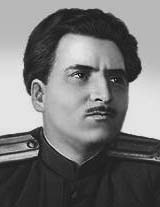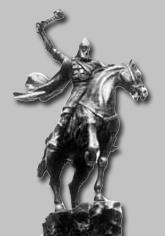


presents
Soviet Writers at War!
JUNE - DECEMBER
by
Konstantin Simonov
(1941)
A report on the changes in the psychology of
Soviet soldiers after the first six months of war


presents
Soviet Writers at War!
JUNE - DECEMBER
by
Konstantin Simonov
(1941)
A report on the changes in the psychology of
Soviet soldiers after the first six months of war
|
|
 Read Sergei Esenin's Song of Yevpaty Kolovrat (in Russian) |
|
Soviet Writers at War! see also: Biography of Konstanin Simonov |
